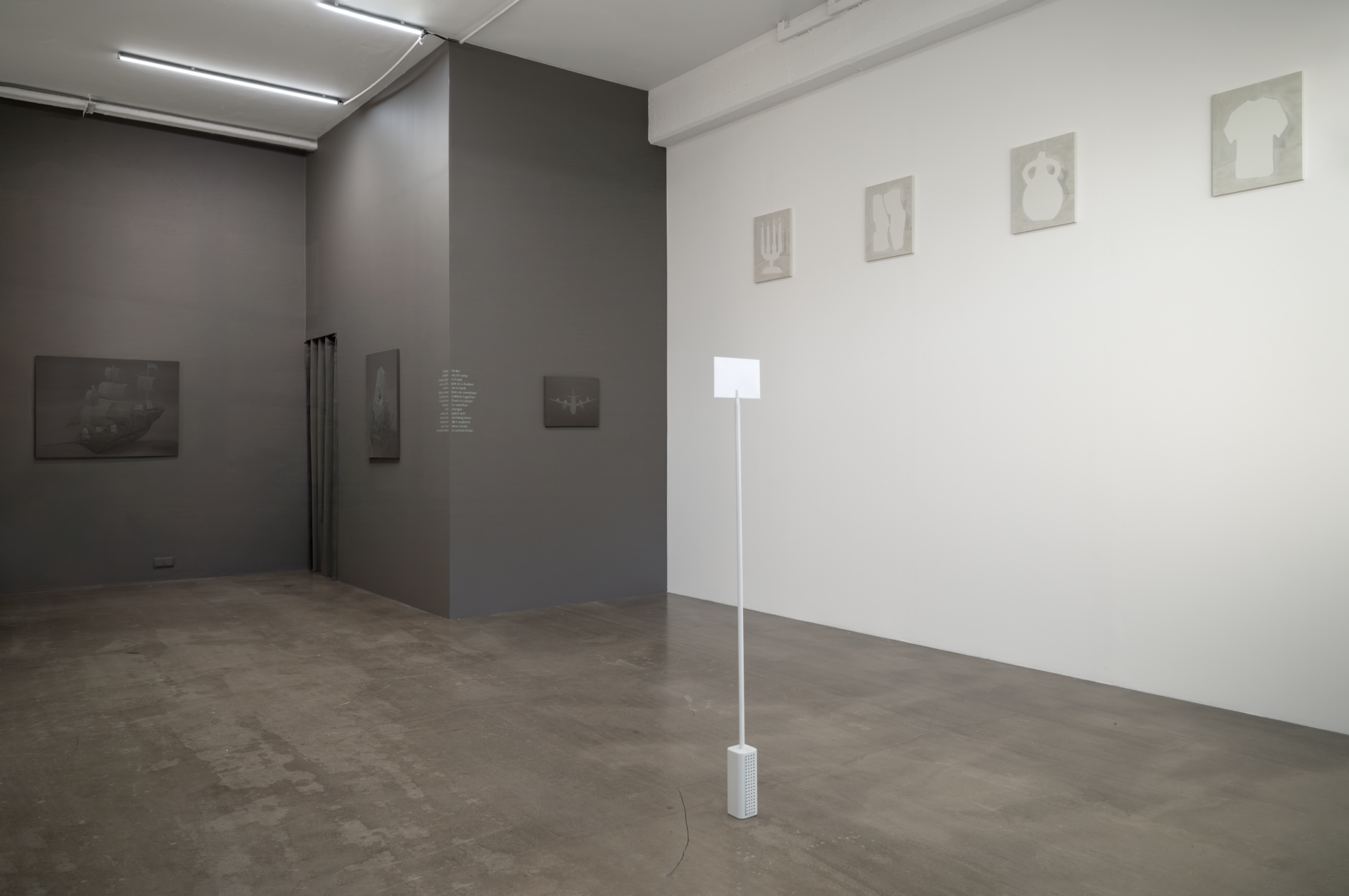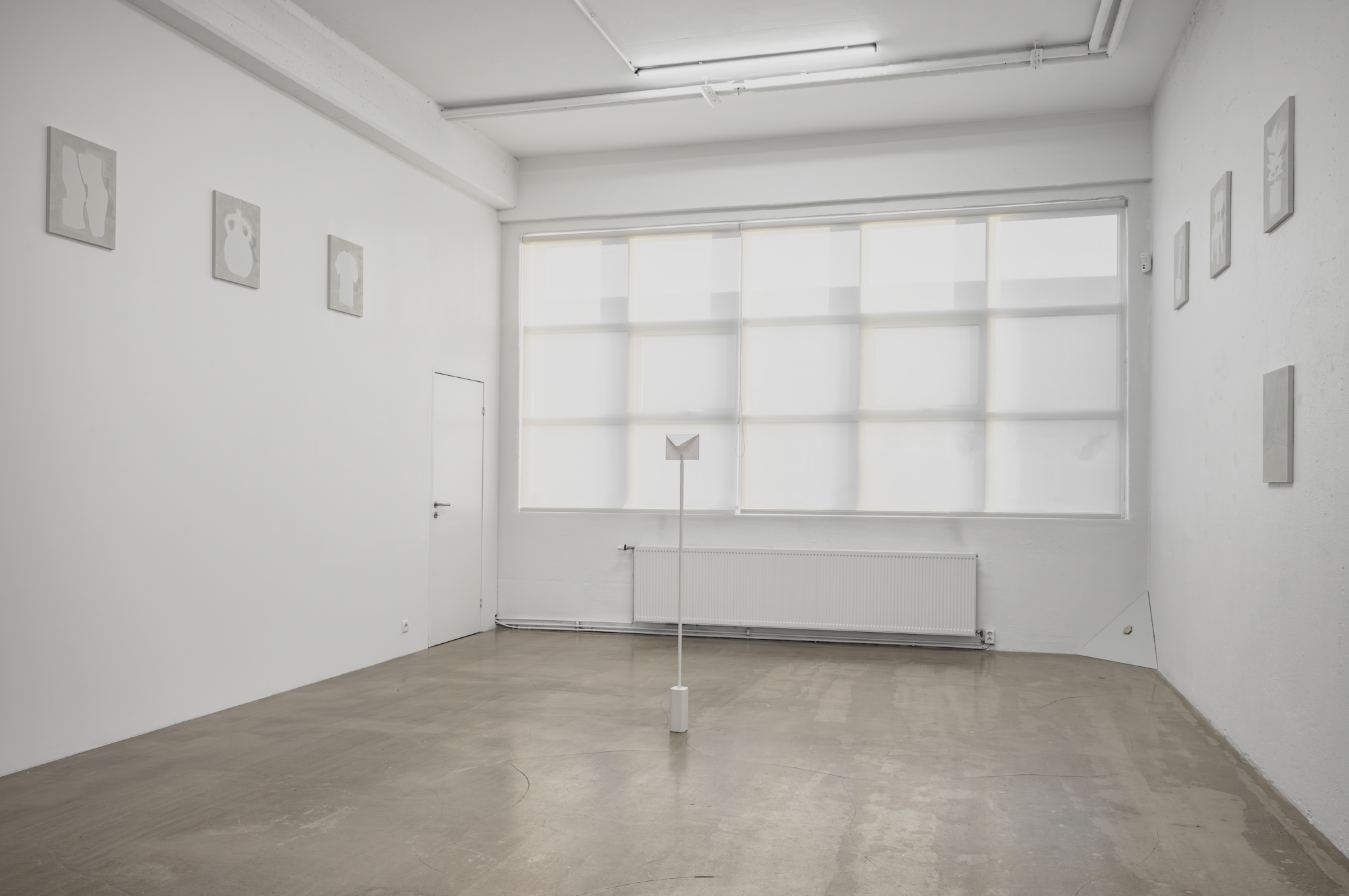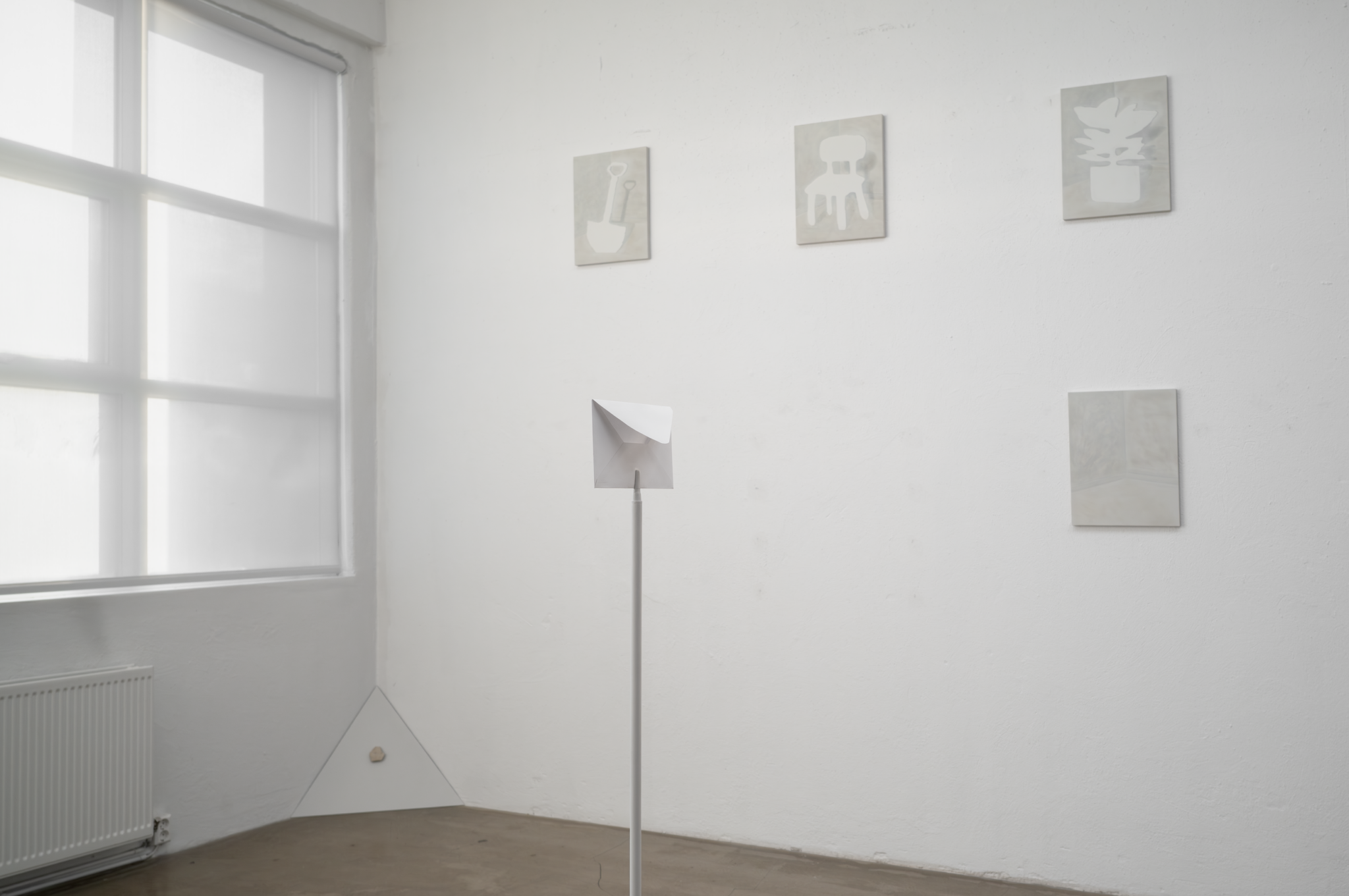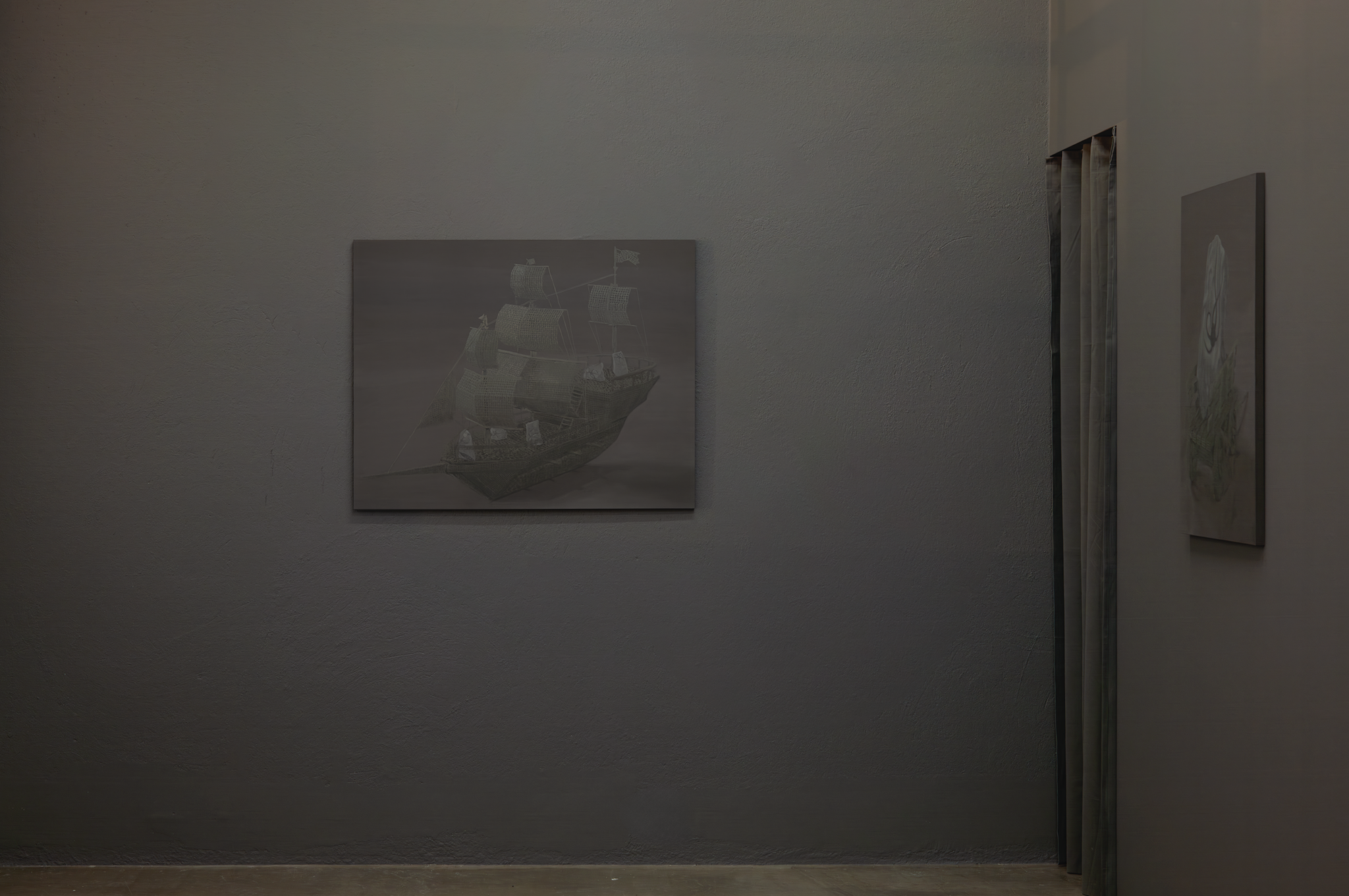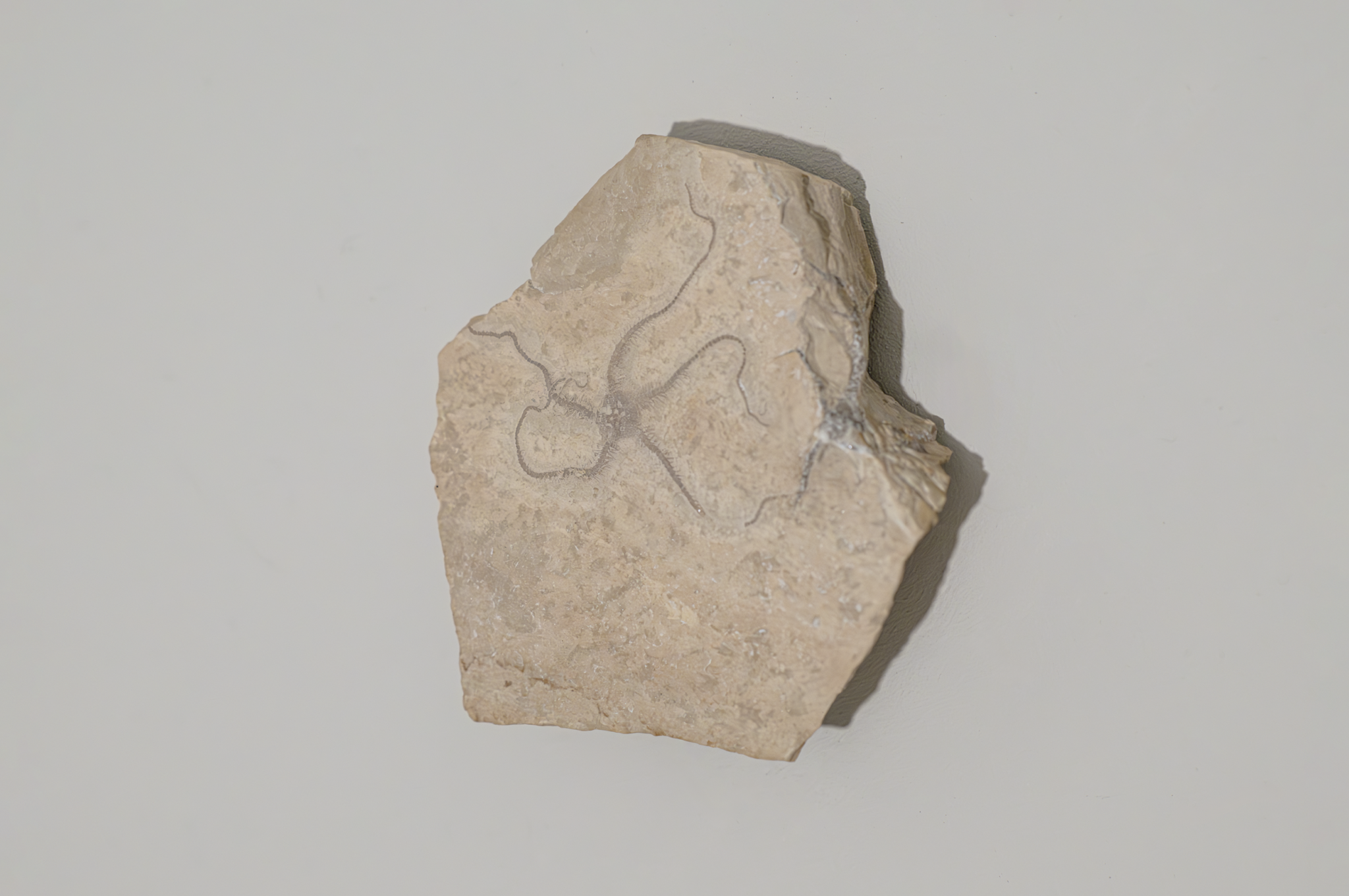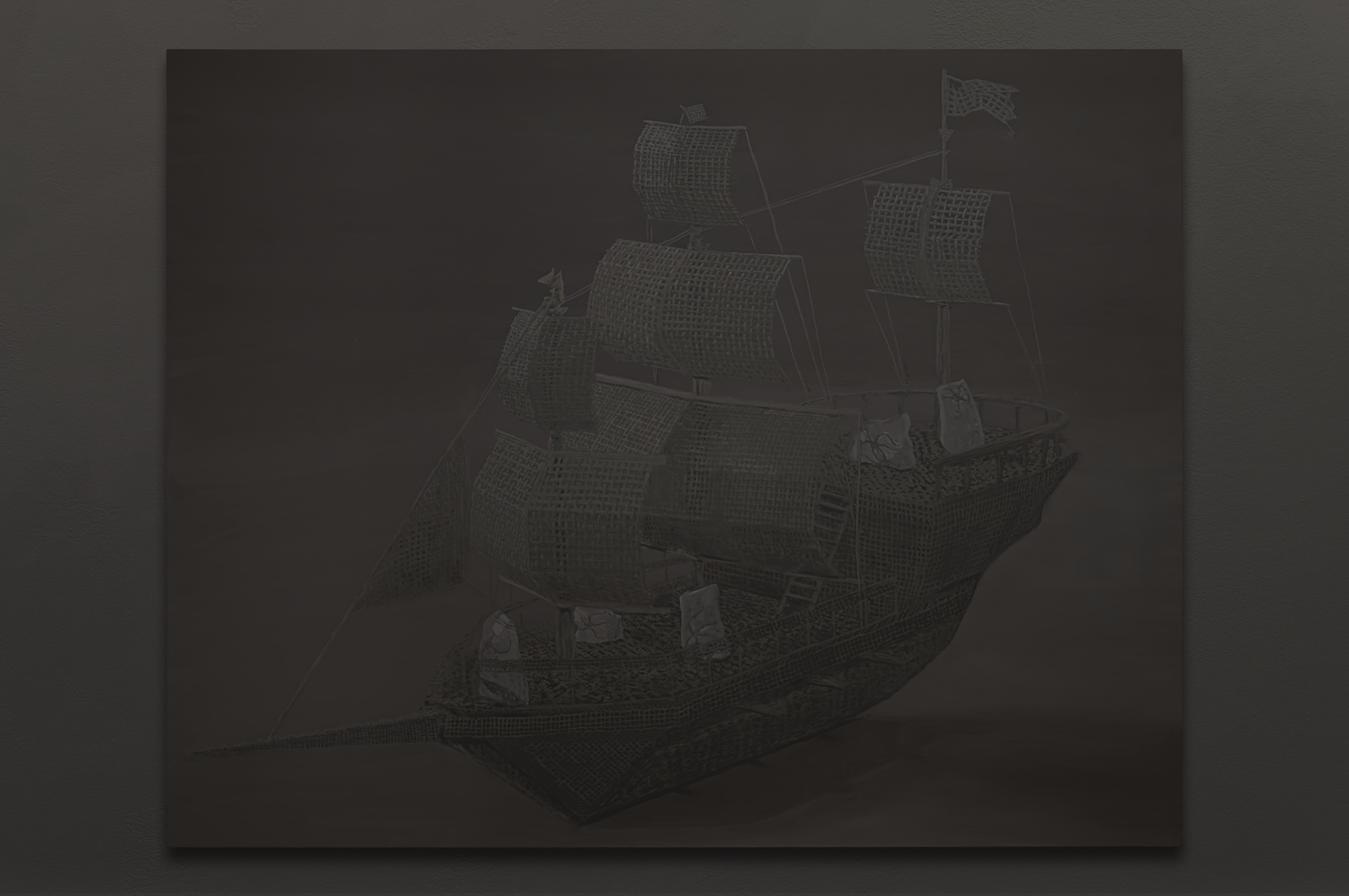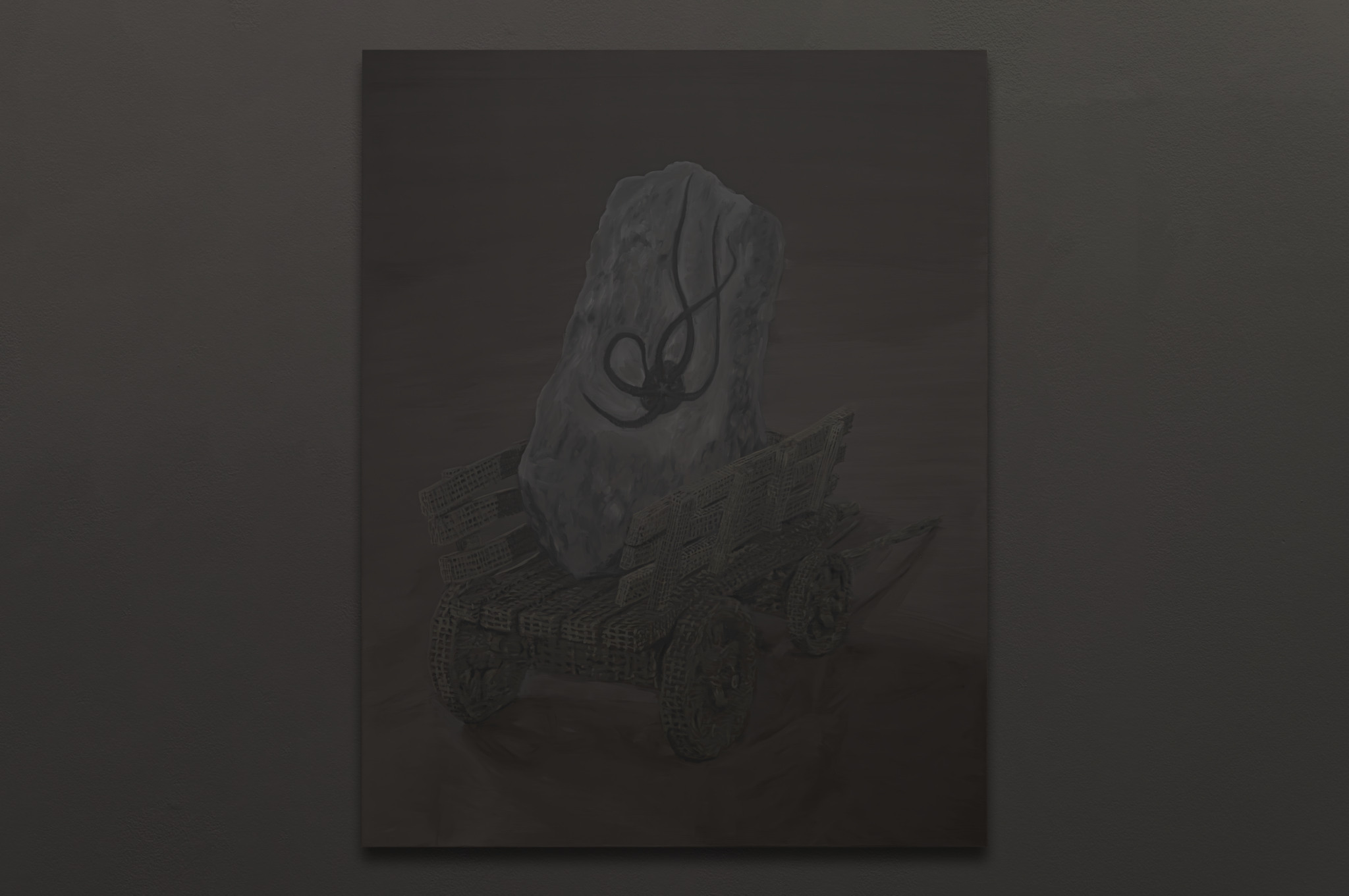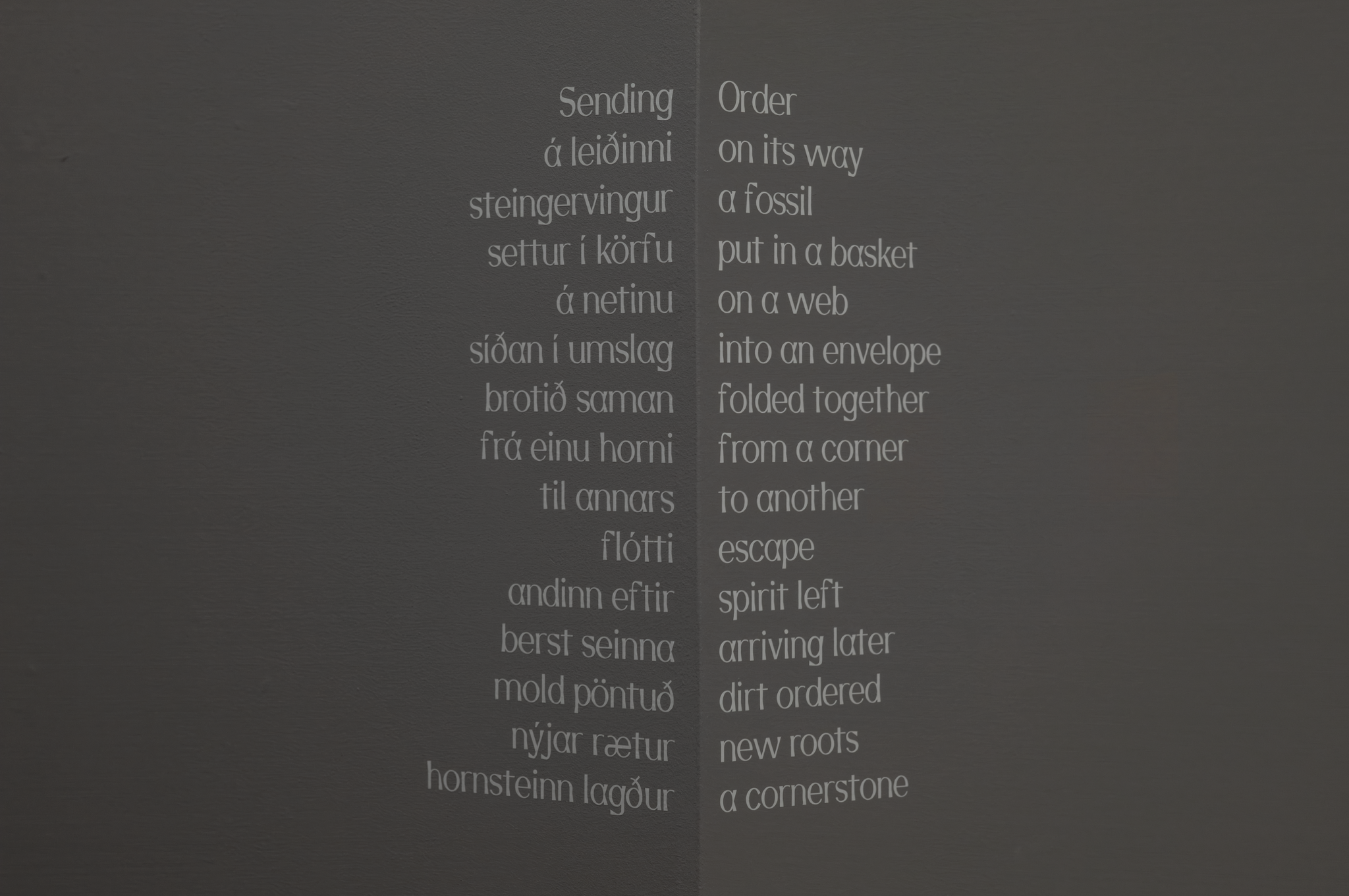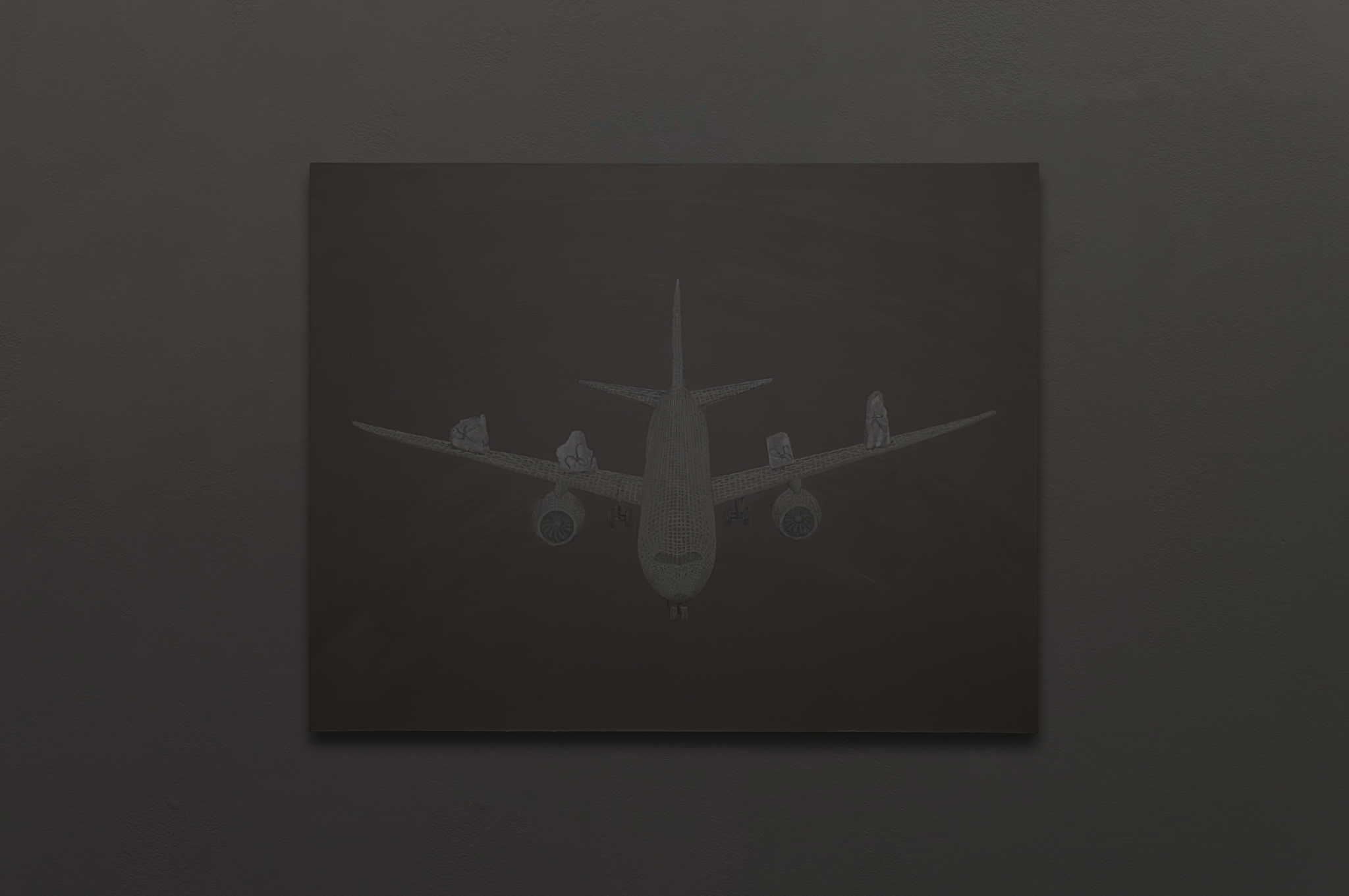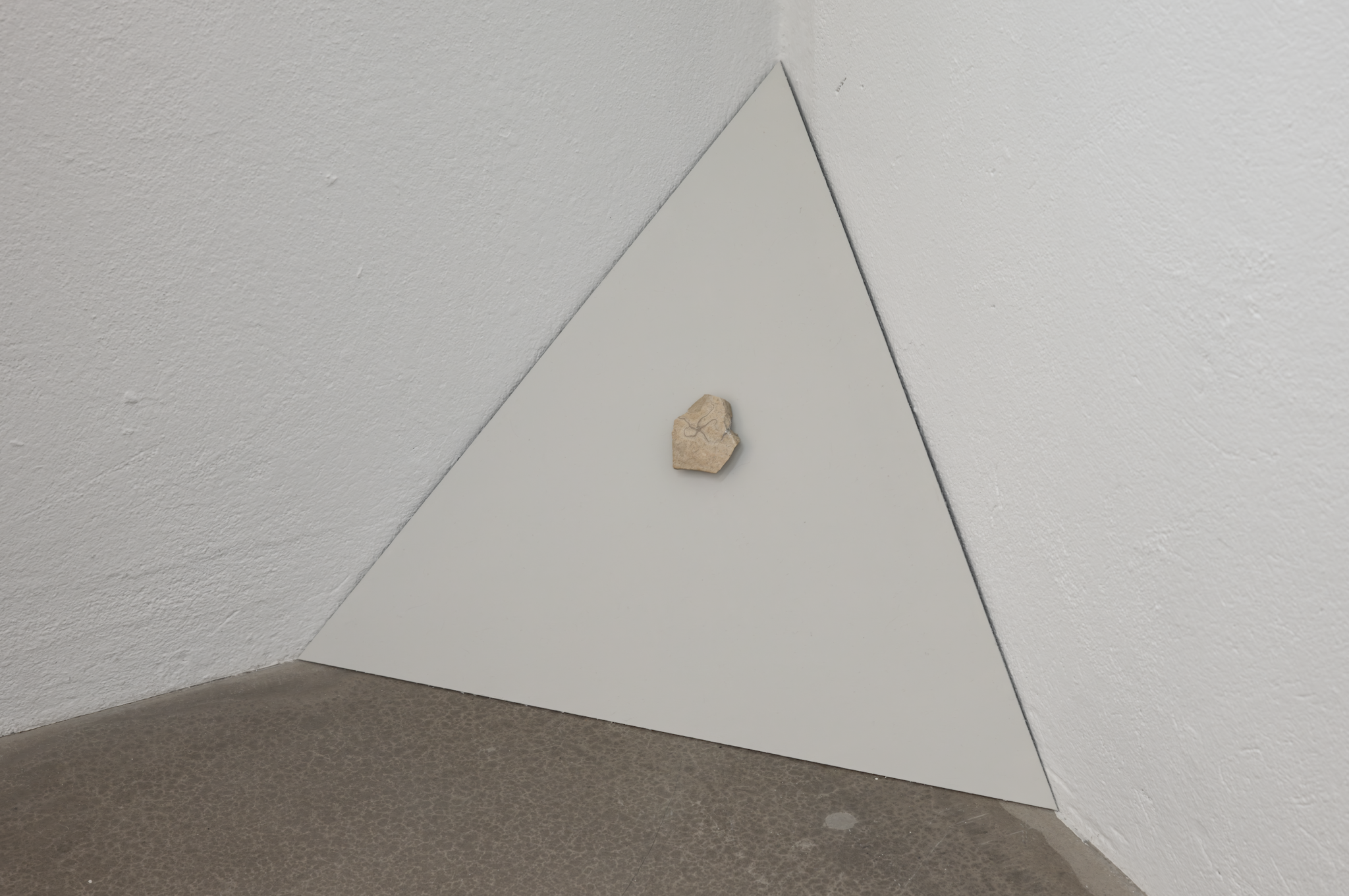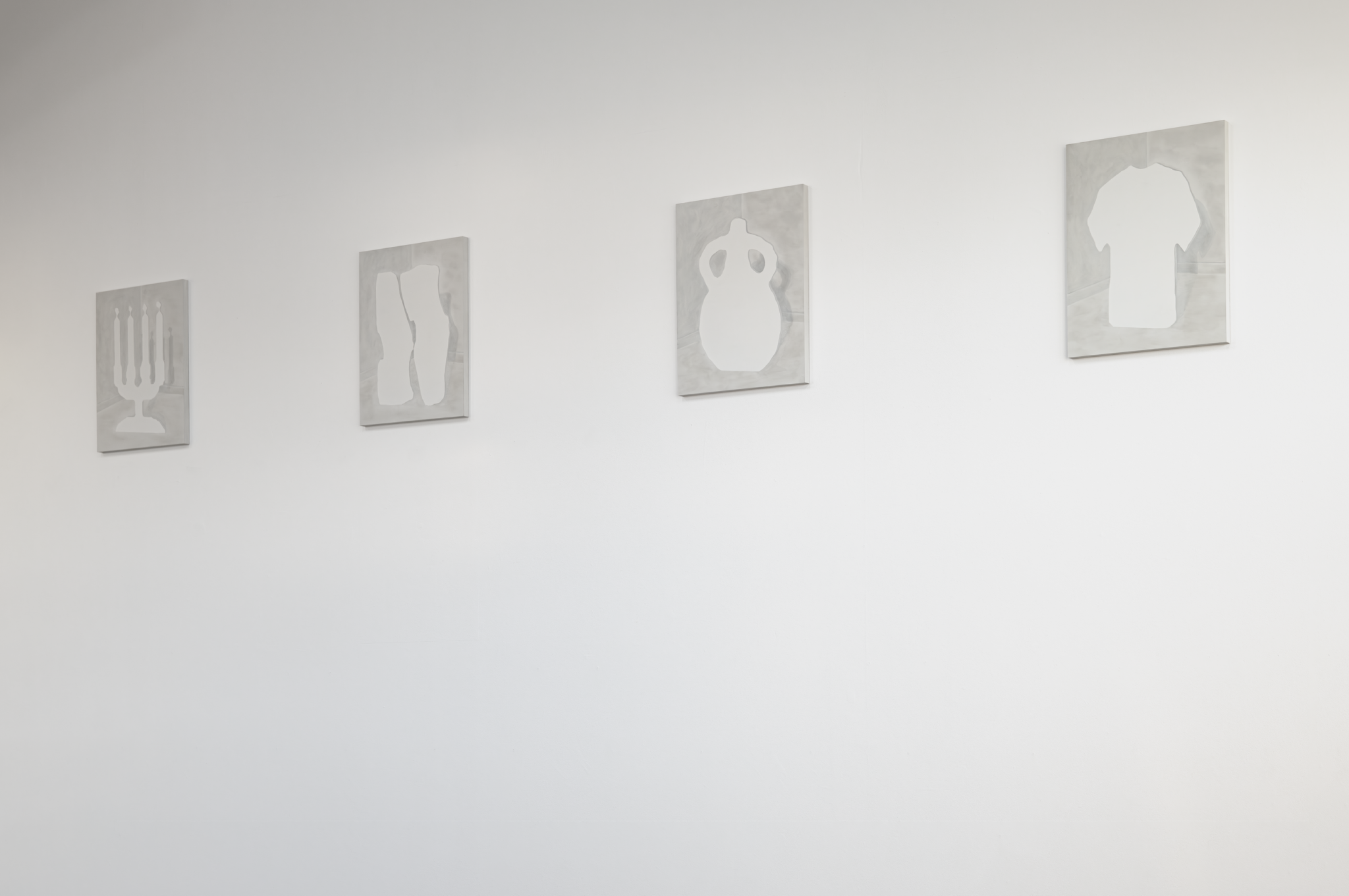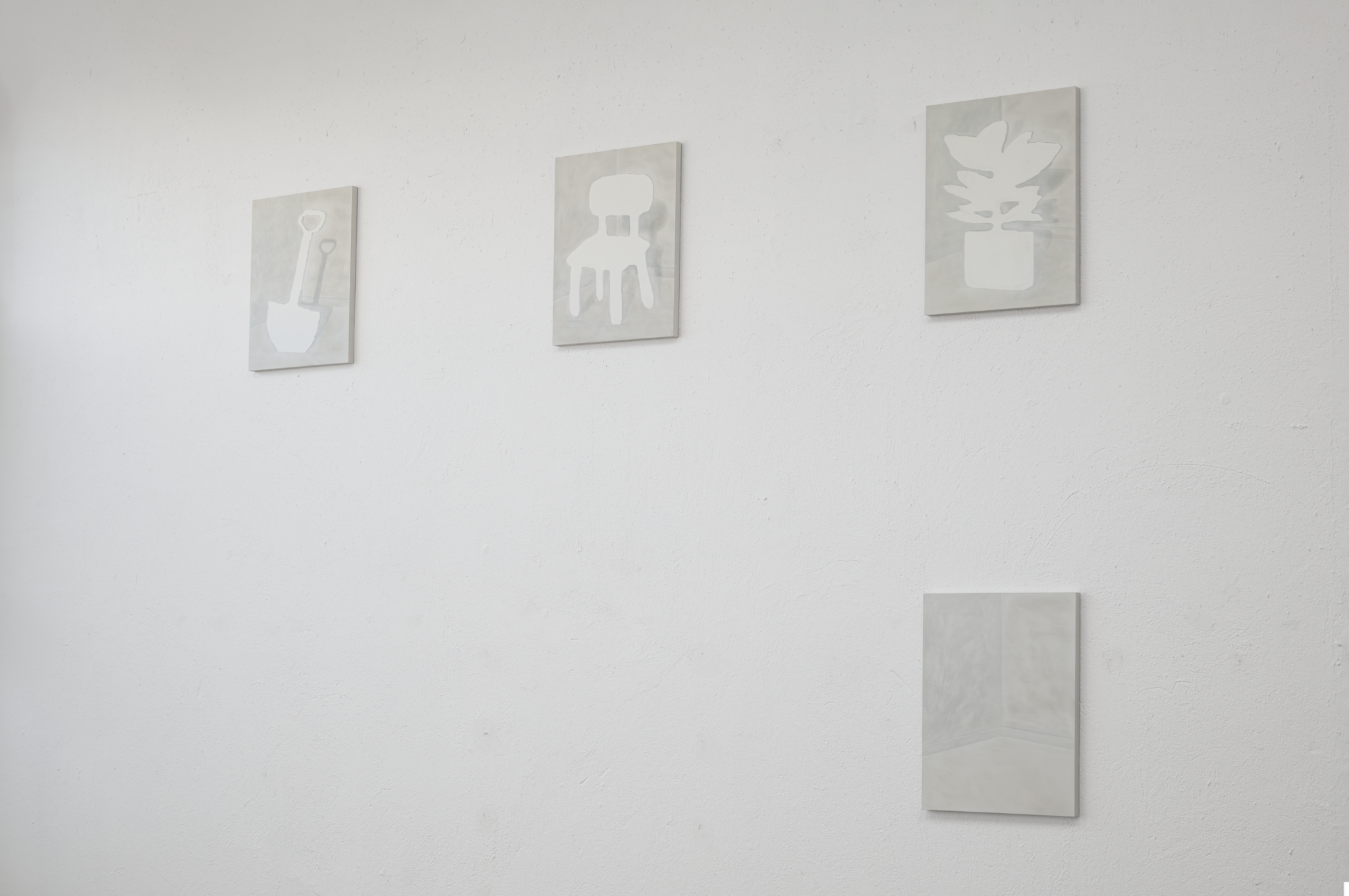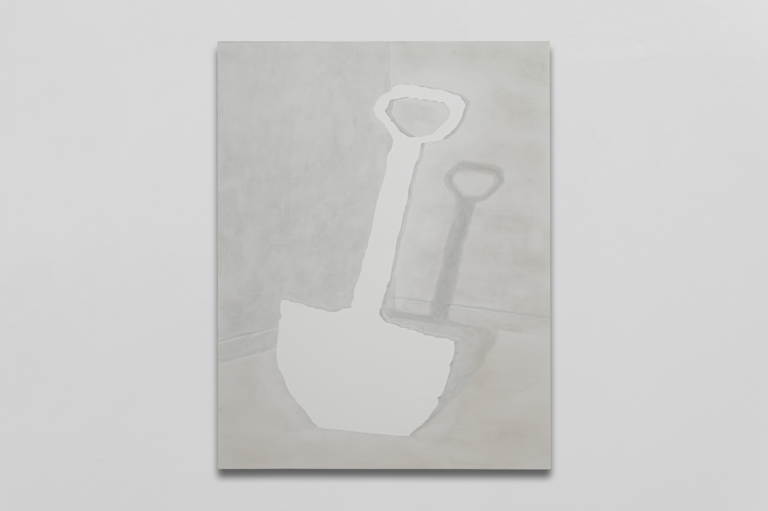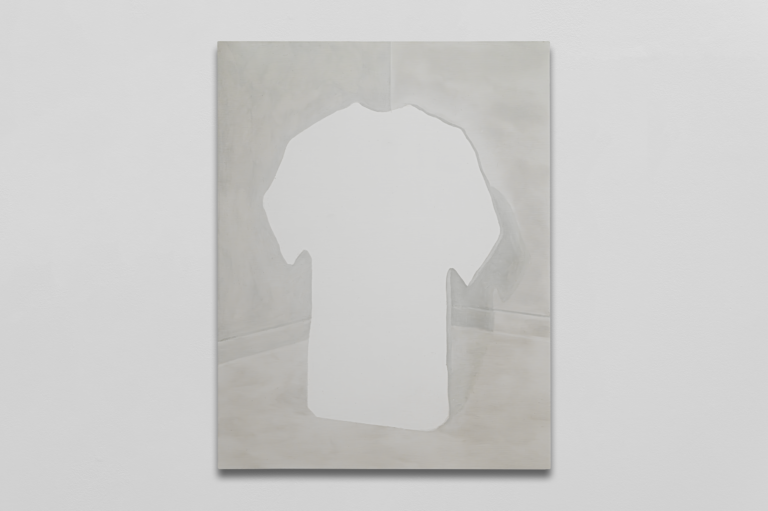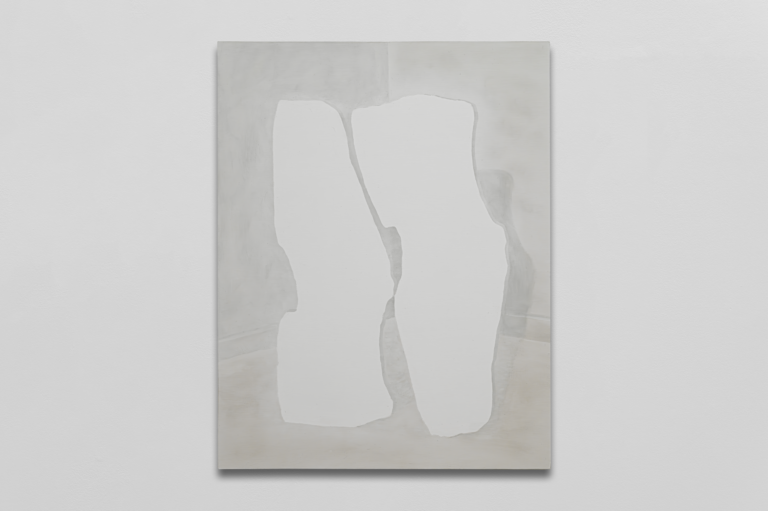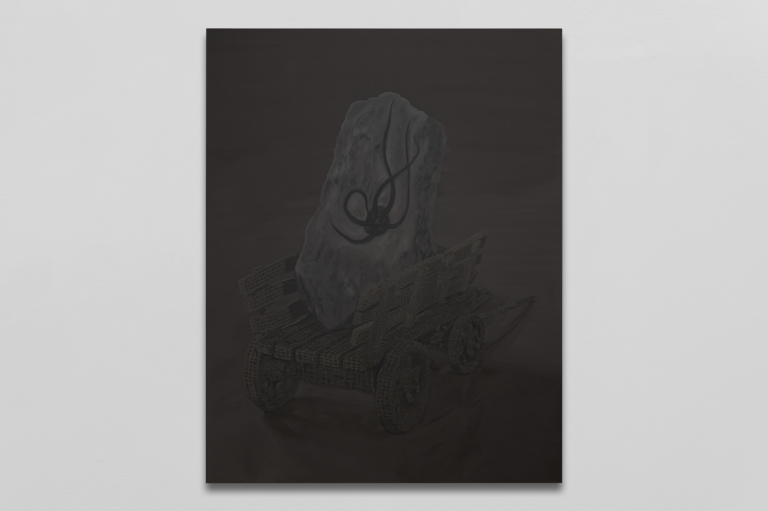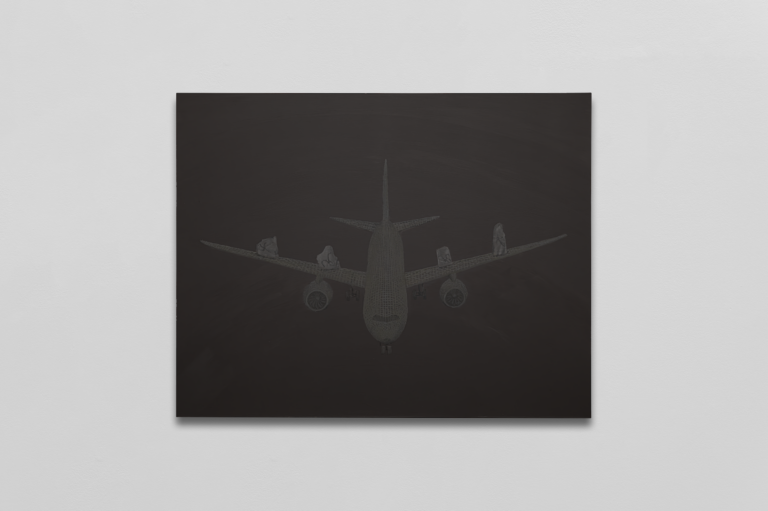Á sýningunni Sending er ferðalag steingervings* sem var keyptur á eBay kannað. Í málverkaröðinni Steinar í körfum sýnir Fritz steingervinga á flutningstækjum eins og kerrum, skipum og flugvélum. Körfuvefnaður flutningstækjanna vísar til veraldarvefsins – þeirra rafrænu „körfu” sem við setjum vörur okkar í á netinu. Þetta dregur fram táknræna mynd af því hvernig netverslun hefur umbreytt upplifun okkar af viðskiptum og vöruflutningi. Steingervingarnir, sem eitt sinn voru lifandi verur, hafa afritast í stein, verið grafnir upp og ferðast nú heim að dyrum, án beins sambands kaupanda við uppruna þeirra. Við kaupum vörur frá öllum heimshornum með nokkrum smellum, og við það afmást landfræðileg mörk. Það sem áður var staðbundið og tengt ákveðnum menningarlegum eða náttúrulegum uppruna er nú aðgengilegt öllum í gegnum sístarfandi hnattrænt netverslunarkerfi.
There is something odd about ordering items online. We choose the item, place it in the shopping cart, and press the purchase button – at that moment, it becomes more than a product; it becomes an idea. We imagine how we’ll feel when we receive it, how it might alter our daily lives. This waiting creates a tension between expectation and reality. The anticipation often becomes even stronger than the feeling we get when the item finally arrives. In the series Sending, the outlines of objects emerge in the gray corners of rooms, and the titles of the works are tracking numbers, like those we see when ordering items online. These are symbols of the idea of an item that has yet to reach its recipient, something supernatural – in transit, between worlds and states of being.
*Brittle star, 145–149 million years old.

